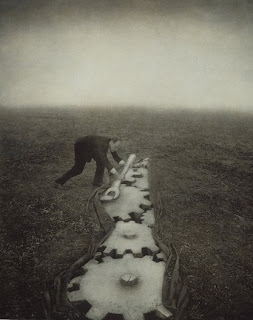
"As far as I do think I understand it, the debate was initiated by the charge that I...and maybe others don't have "theories" and therefore fail to give any explanation of why things are proceeding as they do. We must turn to "theory" and "philosophy" and "theoretical constructs" and the like to remedy this deficiency in our efforts to understand and address what is happening in the world...My response so far has pretty much been to reiterate something I wrote 35 years ago, long before "postmodernism" had erupted in the literary intellectual culture: "if there is a body of theory, well tested and verified, that applies to the conduct of foreign affairs or the resolution of domestic or international conflict, its existence has been kept a well-guarded secret," despite much "pseudo-scientific posturing."
To my knowledge, the statement was accurate 35 years ago, and remains so; furthermore, it extends to the study of human affairs generally, and applies in spades to what has been produced since that time. What has changed in the interim, to my knowledge, is a huge explosion of self- and mutual-admiration among those who propound what they call "theory" and "philosophy," but little that I can detect beyond "pseudo-scientific posturing." That little is, as I wrote, sometimes quite interesting, but lacks consequences for the real world problems that occupy my time and energies...
It's entirely possible that I'm simply missing something, or that I just lack the intellectual capacity to understand the profundities that have been unearthed in the past 20 years or so by Paris intellectuals and their followers....Of course, if it's all beyond my comprehension, which is possible, then I'm just a lost cause, and will be compelled to keep to things I do seem to be able to understand, and keep to association with the kinds of people who also seem to be interested in them and seem to understand them...
There are lots of things I don't understand -- say, the latest debates over whether neutrinos have mass or the way that Fermat's last theorem was (apparently) proven recently. But from 50 years in this game, I have learned two things: (1) I can ask friends who work in these areas to explain it to me at a level that I can understand, and they can do so, without particular difficulty; (2) if I'm interested, I can proceed to learn more so that I will come to understand it. Now Derrida, Lacan, Lyotard, Kristeva, etc. --- even Foucault, whom I knew and liked, and who was somewhat different from the rest --- write things that I also don't understand, but (1) and (2) don't hold: no one who says they do understand can explain it to me and I haven't a clue as to how to proceed to overcome my failures. That leaves one of two possibilities: (a) some new advance in intellectual life has been made, perhaps some sudden genetic mutation, which has created a form of "theory" that is beyond quantum theory, topology, etc., in depth and profundity; or (b) ... I won't spell it out."
MORE
- Noam Chomsky
Maybe they agree on this one...
"I try to carry out the most precise and discriminative analyses I can in order to show in what ways things change, are transformed, are displaced. When I study the mechanisms of power, I try to study their specificity... I admit neither the notion of a master nor the universality of his law. On the contrary, I set out to grasp the mechanisms of the effective exercise of power; and I do this because those who are inserted in these relations of power, who are implicated therein, may, through their actions, their resistance, and their rebellion, escape them, transform them..."
- Michel Foucault
 Apparently, apart from being a wonderful human being, my UBA practico professor, Carlos Battilana, is also a poet :
Apparently, apart from being a wonderful human being, my UBA practico professor, Carlos Battilana, is also a poet :




























